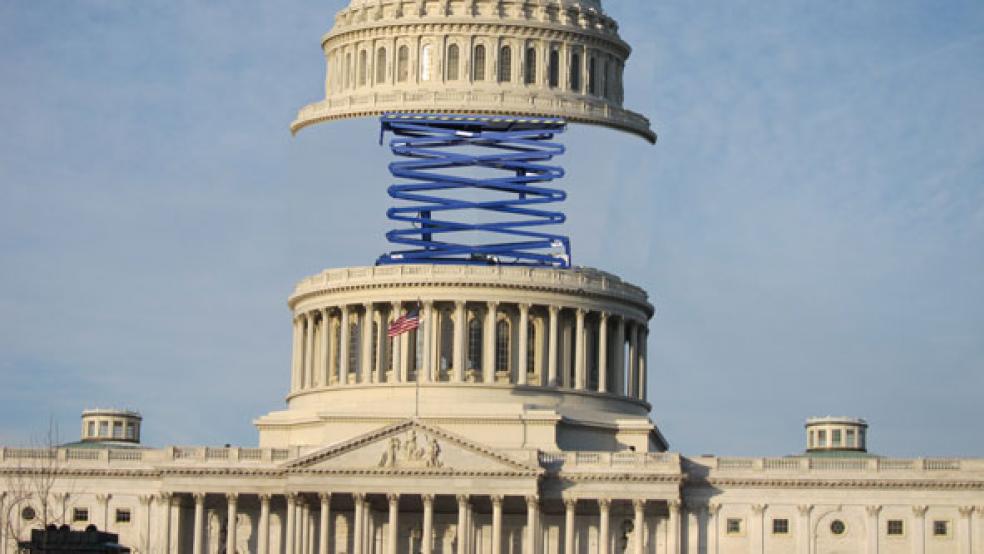Having exhausted the extraordinary measures that have allowed the government to keep paying its bill despite having reached its debt limit seven months ago, the U.S. Treasury is just weeks away from a major fiscal crisis. If the debt ceiling is not raised by early November, the U.S. government will not have enough money on hand to pay the millions of bills and other obligations that come due every day.
In response, House Republicans have a plan. It isn’t a plan to raise the debt ceiling, though, even though that is currently the only viable option for avoiding default. It is, instead, a scheme to allow the government to claim – in the narrowest possible technical sense – that when it stops making payments to some of its creditors that it hasn’t actually “defaulted.”
Related: What a Debt Ceiling Disaster Could Mean to You
The plan, which could come to the House floor next week, relies on making a distinction between a “debt default” and more generalized default. The so-called Default Prevention Act makes it possible for the Treasury Department to borrow additional money “solely” for the purpose of making principle and interest payments on the nation’s publicly-held debt and debt held by the Social Security trust funds.
The measure basically prioritizes bondholders and Social Security recipients over everyone else the government owes money to – veterans, contractors, government employees, and more.
Protecting the reliability of U.S. Treasury debt is, of course, vitally important. The U.S. enjoys extraordinarily low interest rates on its debt precisely because bondholders are confident that they will be repaid on time and in full. Treasury securities are the closest thing investors can get to a completely risk-free asset.
The stability of Treasury debt actually underpins much of the U.S. economy – interest rates on it serve as benchmarks for other assets, pension funds hold government bonds for their investors, and banks and insurance firms rely on them as stable, but liquid, assets.
Related: McConnell’s Last Stand – He Wants Medicare, Social Security Cuts to Raise Debt Limit
So, yes. Not defaulting on federal debt is important. But making a distinction between “debt default” and default in general is practically meaningless. Money owed is a debt, regardless of whom it is owed to, and the credit markets aren’t that stupid.
If the Treasury paid off bondholders, but denied pay to the military and stiffed contractors, building infrastructure projects and government employees, the credit markets would immediately begin viewing U.S. government debt as much riskier. Rates would go up, credit ratings would come down, and the Treasury would be facing a situation similar to what it could expect from missing a bond payment, except with the added bonus of voters furious about their missing checks.
In a blog post on the Treasury website Friday afternoon, Treasury spokesman Daniel Watson wrote, “Proponents of this legislation claim that missing payments on some of our obligations, while prioritizing principal and interest, would be acceptable. On the contrary, it would be untenable for the United States to pick and choose which payments to default on, and is just another distraction from what Congress needs to do: take action to raise the debt limit as soon as possible.”
Rep. Xavier Becerra (D-CA), the chairman of the House Democratic Conference, took the opportunity of looming default to blast the GOP.
Related: The Debt Ceiling – What Is It and Why Should We Care?
“In this Republican-led Congress, governing has become a casualty of Republicans' protracted political civil war. Like a government shutdown, a payment default could deeply damage our economic recovery and risk the livelihood of millions of American families.”
He added, “Americans know that playing with credit is no game. Payment deadlines are real. The clock is ticking; default is not an option. I urge my Republican colleagues to resolve their feuding and let's get to work.”
House Speaker John Boehner (R-OH), who has announced his desire to retire at the end of the month – assuming he can find someone willing to take his job – and has hinted that he wants to strike a debt limit deal before he goes. But the misleadingly named Default Prevention Act is almost as bad as no deal at all.





